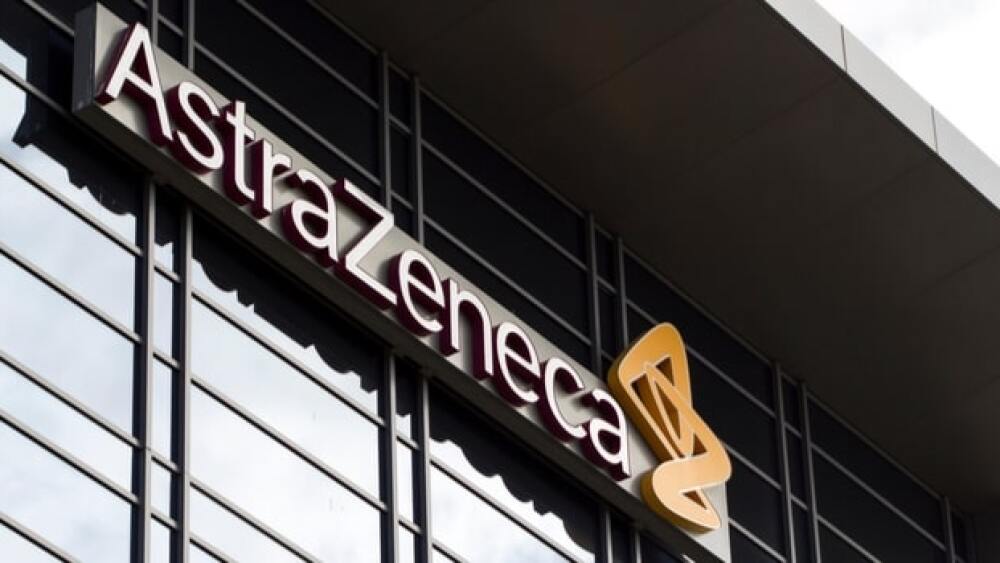AstraZeneca reported that its Phase III KESTREL trial of Imfinzi (durvalumab) failed to meet the primary endpoint of improving overall survival (OS) compared to the EXTREME treatment regimen, which was chemotherapy plus cetuximab, a standard of care.
Tada Images / Shutterstock
AstraZeneca reported that its Phase III KESTREL trial of Imfinzi (durvalumab) failed to meet the primary endpoint of improving overall survival (OS) compared to the EXTREME treatment regimen, which was chemotherapy plus cetuximab, a standard of care. The trial is in first-line treatment of patients with recurrent or metastatic head and neck squamous cell carcinoma (HNSCC) whose tumors expressed high levels of PD-L1.
Imfinzi is a human monoclonal antibody, a checkpoint inhibitor, that binds to PD-L1, blocking the interaction of PD-L1 with PD-1 and CD80. It is approved for unresectable, Stage III non-small cell lung cancer (NSCLC) after chemoradiation and for extensive-stage small cell lung cancer (SCLC), and for previously treated patients with advanced bladder cancer. It is being tested as a monotherapy and in combination with other drugs for NSCLC, SCLC, bladder cancer, hepatocellular carcinoma (HCC), biliary tract cancer, esophageal cancer, gastric and gastroesophageal cancer, cervical cancer, ovarian cancer, endometrial cancer and other solid tumors.
“Metastatic head and neck cancer is a complex and challenging disease with a poor prognosis,” said Dave Fredrickson, executive vice president, Oncology Business Unit, AstraZeneca. “While we are disappointed by these results, insights from the KESTREL Phase III trial will advance our understanding and application of immunotherapy across our clinical development program. We will continue to build on the established benefits of Imfinzi in early lung cancer and small cell lung cancer, to bring immunotherapy treatment options to all patients who may benefit.”
About 750,000 patients were diagnosed with head and neck cancer globally last year. About two-thirds are diagnosed in advanced stages and more than half eventually relapse after treatment. Median survival for a patient with an incurable or metastatic relapse is less than one year. More than 90% of head and neck cancers originate in the squamous cells in the mouth, nose and throat, which are dubbed head and neck squamous cell carcinomas.
KESTREL tested Imfinzi or Imfinzi plus tremelimumab compared to the EXTREME treatment regimen, which is cetuximab with cisplatin or carboplatin plus 5-fluorouracil. Tremelimumab is also an immune checkpoint inhibitor, originally developed by Pfizer, but now being developed by AstraZeneca. Tremelimumab targets cytotoxic T-lymphocyte-associated protein 4 (CTLA-4), blocking its activity and contributing to T-cell activation. It is being evaluated with Imfinzi in NSCLC, SCLC, bladder cancer and HCC.
In the first nine months of 2020, Imfinzi raked in $1.48 billion in sales, a gain of 42%, making it AstraZeneca’s fastest-growing product.
Much of the attention on AstraZeneca has been on its COVID-19 vaccine, which is developed with the University of Oxford. It has been granted authorization in the UK and European Union, but has not yet been submitted for authorization in the U.S. In the UK, South Africa and Brazil, the vaccine demonstrated 76% efficacy after a single dose, which rose to 82% after a second dose three months later.
The U.S. Food and Drug Administration (FDA) is waiting for a U.S. clinical trial to be completed. AstraZeneca indicated that it thinks the trial will wrap in “the next month or two.”
The delay is at least partially related to a clinical hold that occurred in November 2020 after a UK patient suffered partial paralysis of the spine that may have been related to the vaccine. Although the clinical trials resumed quickly afterward in the UK and other countries, such as Brazil, it was delayed for several weeks in the U.S. while the FDA evaluated the data.
There were also other questions about the AstraZeneca-Oxford data. A cohort of the trial accidentally received half-doses of the initial shot, and that group demonstrated efficacy up to 90%, while the full-dose group had an efficacy of 62%. That difference has yet to be explained. There are also questions about how well the vaccine works in people over 65.
Ashish Jha, dean of the Brown University School of Public Health, said it is “a reasonable decision under normal circumstances” for the FDA to wait for “cleaner” data from the U.S. clinical trial, although he added, “there’s a reasonable question to ask: Are these normal circumstances?”
According to the company, data from the Phase III UK trial has already been shared with the FDA, and as soon as U.S. trial data is available, it will be submitted as well. Regulators in Germany and France have indicated there is not sufficient data to justify authorizing the vaccine in people over the age of 65, and as a result, have only authorized it for people below that age.





